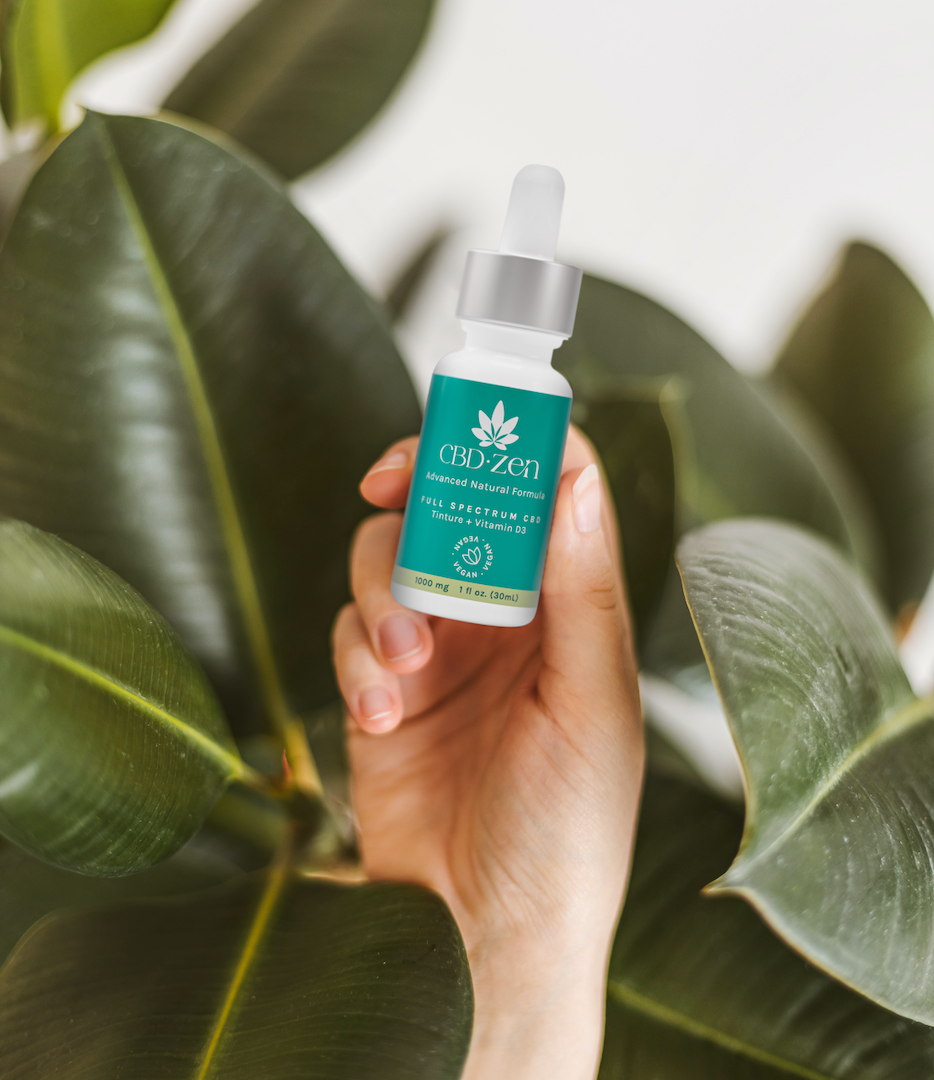Effective Strategies for: Reducing Stress And Anxiety in Times of Uncertainty

Do you feel trapped in uncertainty and out of control over what's coming next? You're not alone. Uncertainty generates anxiety, triggers the production of cortisol (the hormone the body produces in response to stressful or dangerous situations), and affects our ability to make clear decisions. According to the American Psychological Association (APA), chronic stress is now almost a global pandemic and can lead to insomnia, fatigue, and mental health problems.
Fortunately, there are science-backed tools to regain emotional balance. In this article, we'll explore practical strategies like mindful breathing, thought organization, and natural solutions like CBD to help you find calm amidst uncertainty.
1. Conscious Breathing: The Key to Calm in Seconds
When faced with stressful situations, our breathing becomes rapid and shallow, which fuels anxiety. The 4-7-8 breathing technique, developed by Dr. Andrew Weil, has been shown to activate the parasympathetic nervous system, promoting relaxation.
How to practice it?
- Inhale deeply through your nose for 4 seconds.
- Hold your breath for 7 seconds.
- Exhale slowly through your mouth for 8 seconds.
Studies by the APA (American Psychological Association) have confirmed that diaphragmatic breathing can reduce cortisol levels and improve mental clarity in a matter of minutes.
2. Organization of Thought: Focus on What You Can Control
Mental clutter increases feelings of uncertainty and can create a state of paralysis that prevents us from making sound decisions. When our minds are overloaded with cluttered thoughts, it's harder to find solutions and prioritize what's truly important.
Imagine your mind like a serene lake: when too many thoughts swirl on its surface, the water becomes cloudy and you lose your vision.
Writing down our worries and thoughts on paper can be a powerful tool for clearing our minds and reducing anxiety. The practice of journaling, used by many successful people, allows us to process emotions, identify thought patterns, and find greater mental clarity to face challenges with determination.
Recommended techniques:
A brain dump is the act of pouring all those thoughts and worries unfiltered onto paper (or a digital note) to regain calm and clarity.
There are no strict rules: you just take a space to write down everything that's on your mind without judgment or organization. Once you're out, you can prioritize and process what really matters.
Three tips for an effective brain dump:
1. Create a sacred space for mental emptying
Set aside a time of day—preferably at the beginning or end—where you can write uninterrupted. Pair it with a cup of tea, a scented candle, or relaxing music to help your brain feel safe and ready to let go.
2. Don't filter, just flow
Write down everything that comes to mind: to-dos, worries, crazy ideas, dreams, frustrations. Don't try to categorize while you write. The magic happens when you let go without restrictions.
3. Review and organize with purpose
Once everything is out of your head, you can categorize: What's urgent? What can wait? What's just mental noise you can let go of? Turn the important into action and let go of the unnecessary with gratitude.

Eisenhower Matrix: Classify your tasks into "urgent and important" to optimize your energy.
The Eisenhower Matrix isn't just a productivity tool; it's a GPS for your brain. If you feel like you're running around all day but ultimately making no progress, this is for you. The truth is, you don't have a time problem; you have a priority problem. And this technique helps you get them in order—FAST.
Here's the trick: not everything that screams deserves your attention. The Eisenhower Matrix helps you stop reacting like a firefighter putting out fires and start acting like the manager/boss of your life.
Here's the WINNING formula. Take a piece of paper, make a cross, and divide it into four:
- URGENT & IMPORTANT : Do it NOW. These are the things that, if left unresolved, will blow up in your face (deadlines, crises, health issues).
- NOT URGENT & IMPORTANT : Plan for it. This is where the GOLD lies. These are things like working on your goals, learning something new, taking care of your health, and improving your relationships. If you don't prioritize them, they'll one day become a crisis.
- URGENT & NOT IMPORTANT: DELEGATE! This is what drains your energy without adding value. Pointless emails, unnecessary meetings… pass it on to someone else or set a limit.
- NOT URGENT NOR IMPORTANT : Delete it. Yes, I'm talking about the hours you spend on social media watching other people's lives instead of building your own.
3. Natural Solutions: The Role of CBD in Stress Regulation
CBD (cannabidiol) has been shown to be an effective tool for balancing the nervous system and reducing anxiety. According to Healing with CBD by Eileen Konieczny and Lauren Wilson, CBD interacts with serotonin receptors, promoting a state of calm without psychoactive effects.
Benefits of CBDZen:
- Helps reduce stress and anxiety.
- Promotes restful sleep.
- Promotes mental clarity.
If you're looking for a natural alternative to manage stress, take a dropper of our CBDZen one hour before going to bed each day and promote rest and peace for your body.
4. Movement and Connection: The Power of Exercise and Social Support
Exercise is one of the most effective ways to reduce stress, as it releases endorphins, known as "happiness hormones." According to the Mayo Clinic, activities like yoga and walking improve mood and mental health.
Furthermore, maintaining social connections is essential. Close relationships and social support significantly reduce the negative effects of stress and contribute to a fuller, healthier life.
5. The Importance of Sleep in Stress Regulation
Sleep plays a crucial role in emotional regulation and stress reduction. According to Matthew Walker's Why We Sleep, a lack of sleep amplifies the stress response and negatively impacts decision-making and emotional stability. [ source ] During sleep, the brain processes emotions and consolidates memories, allowing you to face daily challenges with greater resilience. Additionally, insufficient sleep can increase the production of cortisol, the stress hormone, perpetuating a cycle of anxiety and fatigue.
Numerous studies have shown that sleeping at least 7-9 hours per night improves emotional regulation, strengthens the immune system, and enhances cognitive function. Chronic sleep deprivation not only affects mental health but also increases the risk of cardiovascular disease, diabetes, and metabolic disorders. Therefore, adopting healthy habits to improve sleep quality is essential for overall well-being.
Strategies to improve sleep:
- Maintain a consistent sleep schedule.
- Avoid caffeine and screens before bed.
- Practice relaxation techniques such as yoga and meditation.
Incorporating these strategies into your daily routine can make a big difference to your well-being. Which one will you try first?
Frequently Asked Questions (FAQs)
How does uncertainty affect mental health?
Uncertainty activates the brain's alert system, increasing cortisol levels and contributing to anxiety and insomnia.
How long does it take to notice the benefits of CBD on anxiety?
The effects can be felt within 30-60 minutes and improve with consistent use. The key is to choose a quality product like CBDZen .
Does conscious breathing really help reduce stress?
Yes, according to APA studies, deep breathing activates the parasympathetic system and reduces anxiety in just a few minutes.
How do social relationships influence stress reduction?
According to The Good Life by Robert Waldinger and Marc Schulz, close relationships and social support are essential for reducing stress and increasing emotional resilience. Maintaining healthy relationships improves overall well-being and longevity.
Sources consulted
- American Psychological Association (APA) – Report "Stress in America 2024"
- Mayo Clinic – Benefits of exercise for mental health
- Psychological Science – The Impact of Social Support on Stress Management
- CBDZen – CBD and its relationship with well-being
- Healing with CBD – Book by Eileen Konieczny and Lauren Wilson
- The Good Life – A book by Robert Waldinger and Marc Schulz about happiness and well-being
- Mindfulness and Sleep – Anna Black's book on the connection between mindfulness and restful sleep
- Why We Sleep – Matthew Walker's book on the importance of sleep for mental health




Leave a comment